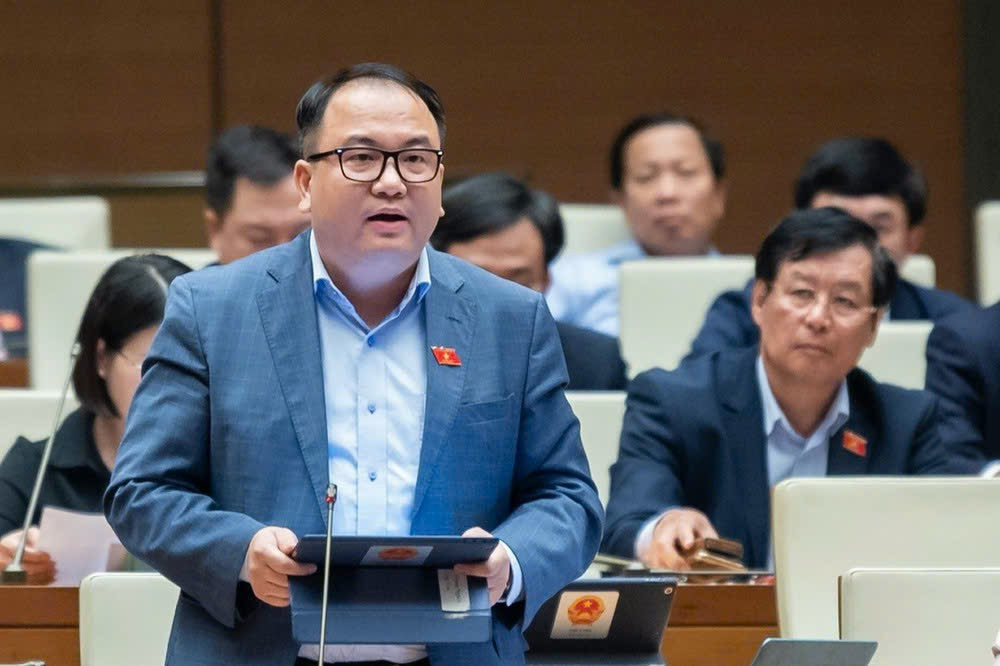
Everything needs to be ready so that residents will not have to travel farther for administrative procedures and communes will have sufficient capacity to meet the needs of the populace.
The Politburo and the Secretariat have recently tasked the Government Party Committee with leading and coordinating with the Central Organization Commission, the National Assembly Party Committee, the Vietnam Fatherland Front Party Committee, central mass organizations, and relevant agencies to direct research and develop proposals and submissions to the Politburo regarding the merger of certain provincial administrative units, the elimination of the district level, and the continued consolidation of commune-level administrative units.
This content must be finalized for submission to the Central Committee of the Communist Party (via the Central Organization Commission) before April 7.
Enhancing commune-level cadres’ capacity
In an interview with VietNamNet, Pham Trong Nghia, a National Assembly Deputy for the Committee on Culture and Society, stated that to ensure the feasibility and effectiveness of the administrative apparatus streamlining, several issues need attention.
Firstly, it is necessary to define the authority of the provincial and communal levels. According to Nghia, the district level currently serves as an intermediary in land management, civil registration, public security, local budgeting, and socio-economic development policy implementation.
“When abolishing the district level, it is necessary to clearly delineate which of these functions will be transferred to the provincial level or delegated to the commune level,” Nghia said.
Regarding the resources to perform these functions, Nghia believes that eliminating the district level would require provinces and communes to take on additional duties (planning, licensing, resolving land disputes, etc.). Consequently, personnel, budgets, and infrastructure at the provincial and commune levels must be strengthened.
“It is imperative to enhance the capacity of commune-level cadres to meet new demands while reducing reliance on the intermediate level,” Nghia said.
Thirdly, with the district level removed, solutions must be ready to prevent residents from having to travel greater distances and to be sure that communal units are capable of addressing people’s needs.
The synchronization of the political system is another issue that must be addressed when considering the abolition of the district level.
“Currently, Party organizations and mass organizations are structured parallel to the government across all three levels. Thus, abolishing the district level will necessitate adjustments to this entire system,” Nghia noted. Additionally, a comprehensive review and amendment of all legal documents related to the district level will be required.
Swiftly amending legislation
According to Nghia, merging provinces and eliminating the district level to streamline the administrative apparatus into a lean, efficient, and effective system requires comprehensive legal amendments.
In addition to amending the Constitution, the highest legal foundation, subsequent specialized laws must be revised to redistribute functions and responsibilities between the provincial and commune levels. This applies particularly to legal provisions concerning organizational structures, judicial proceedings, budgets, natural resources, business conditions, and population management.
Nghia went on to say that it is necessary to amend the Law on Local Government Organization, the provisions related to the functions, duties, and powers of the district level, alongside adjustments to the relationship between the provincial and commune levels.
In tandem, the Law on the Organization of People’s Courts and the Law on the Organization of People’s Procuracies also need amendments.
Numerous other critical laws, such as the Land Law and the Law on Environmental Protection, will also have to be adjusted to ensure seamless implementation.
Furthermore, amendments to the 2015 State Budget Law are necessary, as abolishing the district level will require revising regulations on budget allocation, transferring financial resources directly from provinces to communes, or adjusting public financial management mechanisms at the provincial level to align with the new model.
Laws related to civil registration, population management, and administration will also need synchronized revisions. For instance, the Law on Civil Status and the Law on Residence assign responsibilities to district-level authorities for managing civil records and residency. With the district level abolished, these laws must be amended to reallocate responsibilities between provinces and communes.
These legal amendments will be carried out swiftly, decisively, and efficiently, bolstered by the determination of the entire political system to build a “lean, compact, strong, efficient, and effective” apparatus, as outlined by Party Chief To Lam.
Under Conclusion 127, the Politburo and Secretariat mandated a review, amendment, and supplementation of Party regulations, the Constitution, and laws.
Thu Hang